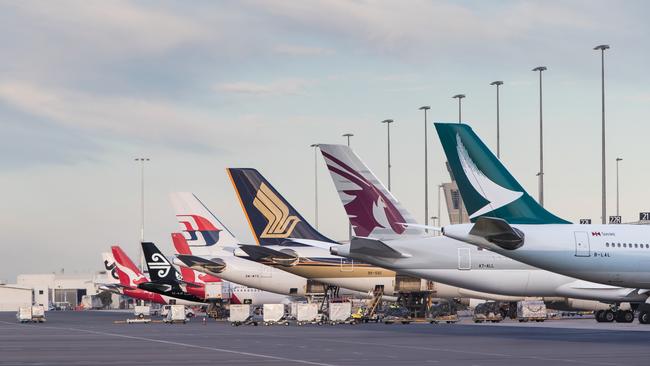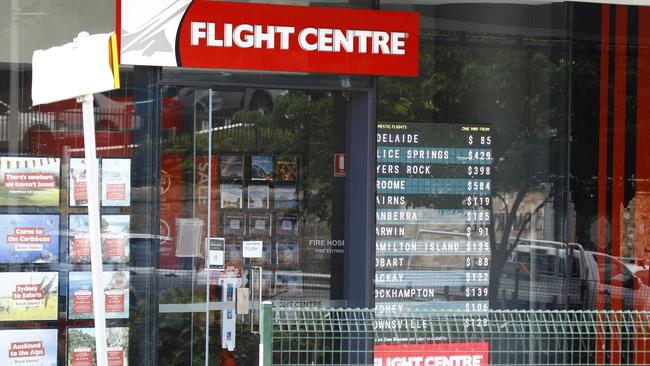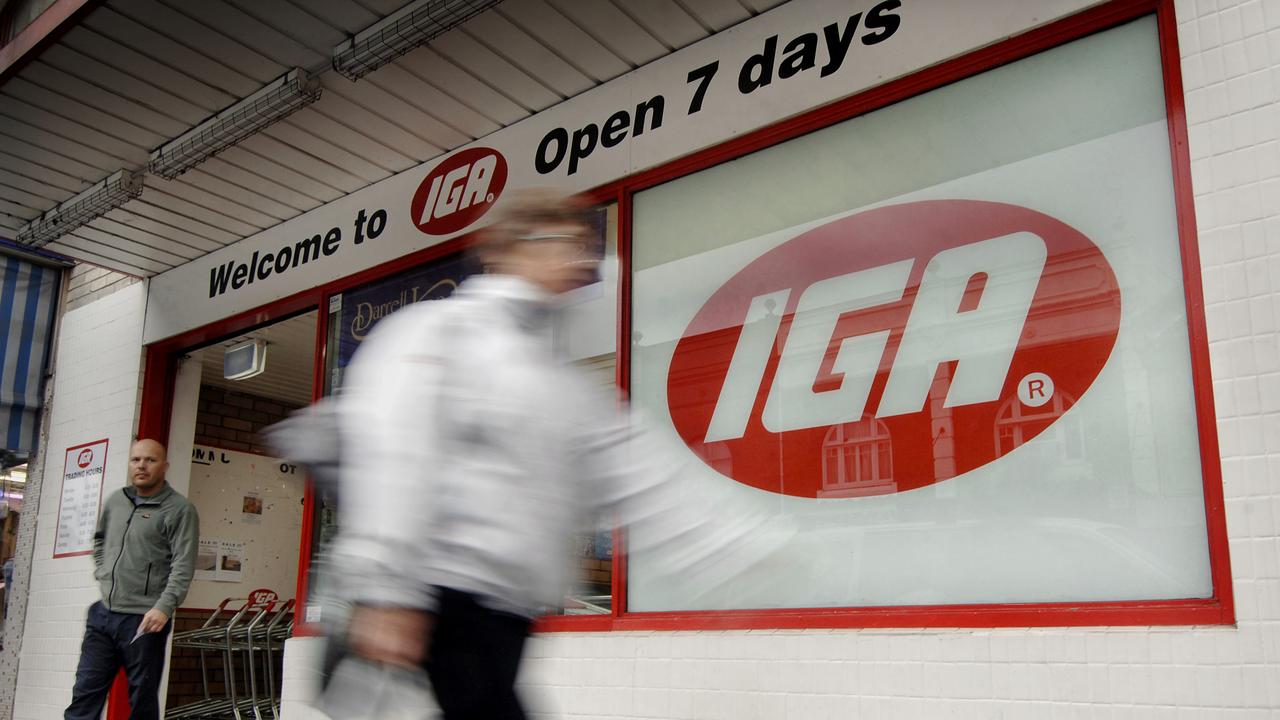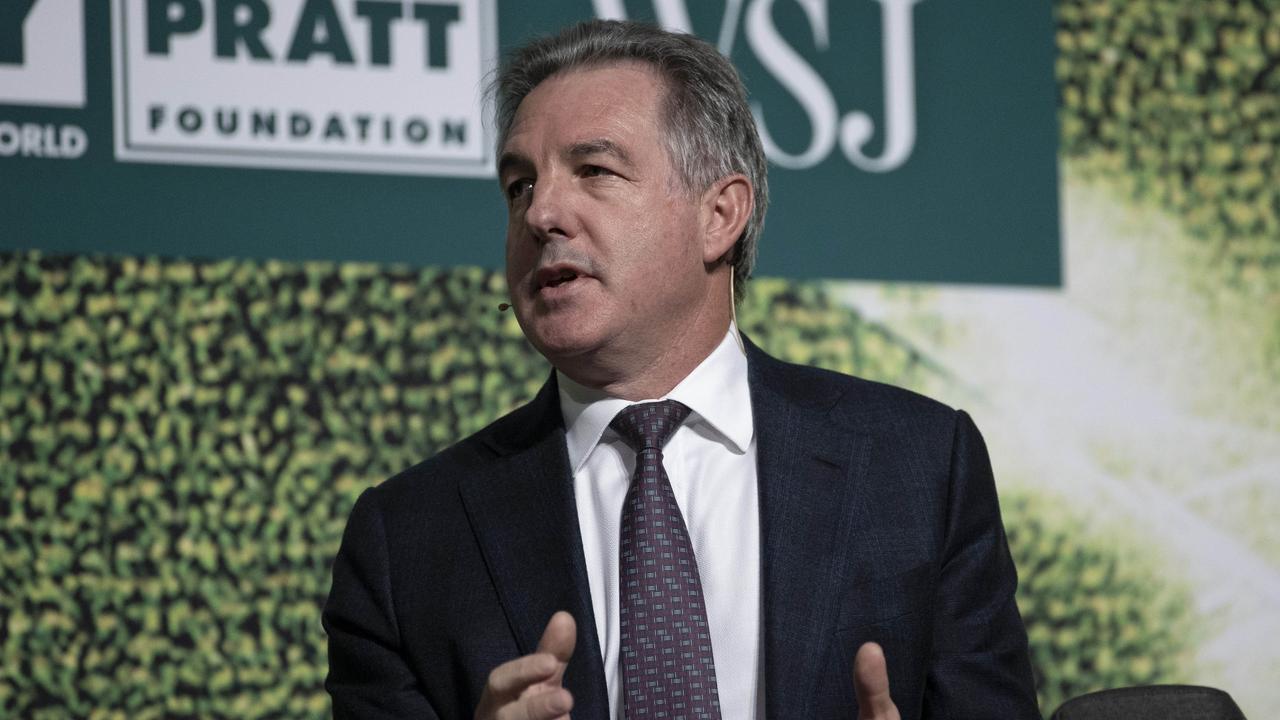Flight Centre’s FCM says cheaper airfares will fuel demand for business travel
Cheaper airfares driven by airlines adding more capacity to and from Australia are set to see many businesses step up corporate travel.

Business
Don't miss out on the headlines from Business. Followed categories will be added to My News.
Cheaper airfares driven by airlines adding more capacity to and from Australia are set to see many businesses step up corporate travel, despite the nation’s economy being suppressed by inflation and interest rate rises.
Flight Centre’s corporate division, FCM Travel, which counts Optus, Wesfarmers and Toyota as clients, expected to see an increase in bookings in the coming year with New Zealand accounting for much of the international demand as a change of government fuels public sector spend.
Flight Centre Global Corporate chief operating officer Melissa Elf told The Australian that major corporate clients were looking to double down on business travel with many looking to use the savings by cheaper airfares to either maintain existing travel arrangements, or in many cases expand the number of trips taken.
“Our clients are telling us that they’ll be spending the same, if not more for the new financial year,” she said. “This probably has to do with the fact that as capacity increases globally, a business is hopeful that fares will come down, which is what we expect to happen as well.”
Data from Australian Bureau of Statistics showed that short-term international trips undertaken by Australians were at pre-pandemic levels for the first time with 1.39 million taken in January.

Short-term visitor arrivals were 17.4 per cent below pre-pandemic levels. Ms Elf said travel might have once been viewed as discretionary spend by many businesses, and first on the chopping block in an economic slowdown, but added that corporates saw it key to rebuilding and growing their businesses following the pandemic.
New Zealand was the most sought after destination for corporates. Demand increased 30 per cent between September 2023 and February from a year ago.
Of all trans-Tasman travel across FCM’s customer base, Australian departures account for 75 per cent, and New Zealand departures account for 25 per cent, but it noted that demand from later outstripped Australia once the difference in population was factored in. Travel to New Zealand was consistently more than 10 per cent of FCM Travel’s international bookings out of Australia throughout 2023.
“New Zealand is only a three or four-hour flight depending on where you are travelling from, so it benefits from that many organisations view it as a domestic-type trip and not an international one,” Ms Elf said.
The industries travelling most frequently between Australia and New Zealand in the past six months were construction at 19 per cent market share, followed by education (16 per cent), government and not-for-profit (13 per cent) and finance and insurance on 12 per cent.
Ms Elf said the change of government had helped to prompt greater travel as corporates and the public sector connected with the new people in charge, while more Kiwi businesses looking to expand into Australia were packing flights this side of the Tasman.
“While New Zealand is seeing cost cutting going on across government agencies domestically, we are of the opinion that Australia’s public sector is investing more heavily to fill that gap in making the trip to them,” she said.
Originally published as Flight Centre’s FCM says cheaper airfares will fuel demand for business travel



